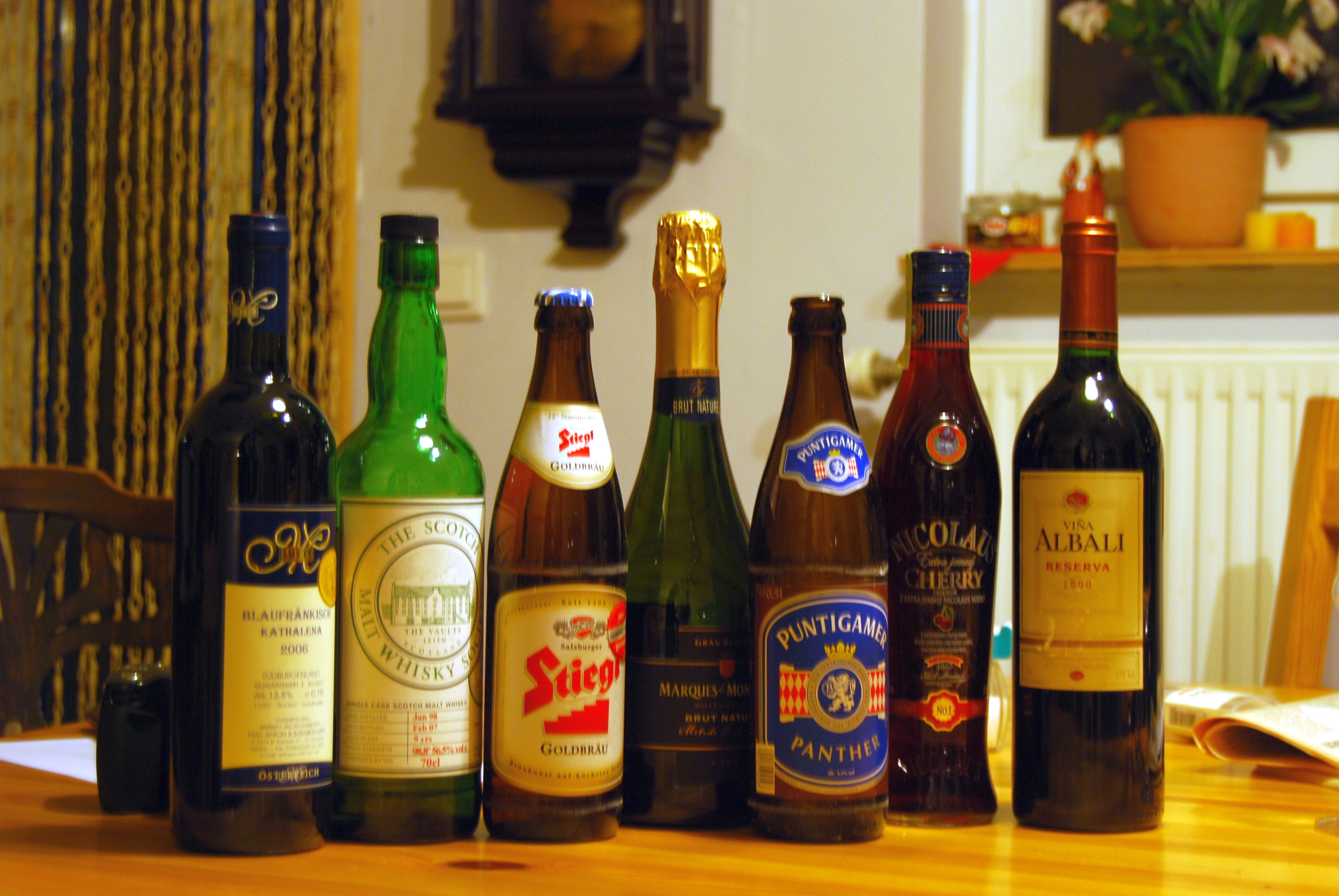|
Zatoichi The Outlaw
is a 1967 Japanese ''chambara'' film directed by Satsuo Yamamoto and starring Shintaro Katsu as the blind masseur Zatoichi. It was originally released by the Daiei Film, Daiei Motion Picture Company (later acquired by Kadokawa Pictures), and is the first film produced by Katsu Productions (Katsu's own company). ''Zatoichi the Outlaw'' is the sixteenth episode in the 26-part film series devoted to the character of Zatoichi. Plot In a rural village, Zatoichi (Katsu) encounters Shushi Ohara (Suzuki; modeled after 18th-century agriculturalist Yagaku Ohara) a sword-less rōnin who defends himself against multiple attackers without killing them. Ohara leads a peasant movement advocating the Abstinence, abstention from gambling, Alcoholic beverage#Alcohol consumption, drinking, and whoring. Cast *Shintaro Katsu as Zatoichi *Rentarō Mikuni as Boss Asagoro *Kō Nishimura as Suga *Yuko Hamada as Oshino *Toshiyuki Hosokawa as Nisaburo *Takuya Fujioka as Zatosanji *Kenjiro Ishiyama as Tats ... [...More Info...] [...Related Items...] OR: [Wikipedia] [Google] [Baidu] |
Satsuo Yamamoto
was a Japanese film director. Yamamoto was born in Kagoshima City. After leaving Waseda University, where he had become affiliated with left-wing groups, he joined the Shochiku film studios in 1933, where he worked as an assistant director to Mikio Naruse. He followed Naruse when the latter moved to P.C.L. film studios (later Toho) and debuted as a director in 1937 with ''Ojōsan''. During World War II he directed the propaganda films ''Winged Victory'' and ''Hot Winds'' before being drafted and sent to China. After returning to Japan, Yamamoto's first film was the 1947 ''War and Peace'' (not based on the Leo Tolstoy novel), co-directed with Fumio Kamei. Being a communist and an active supporter of the union during the Toho labour strikes, he left the studio in 1948 after the strikes' forced ending and turned to independent filmmaking. The left-wing production company Shinsei Eiga-sha, formed by former Toho unionists, produced his commercially successful ''Street of Violence'' ... [...More Info...] [...Related Items...] OR: [Wikipedia] [Google] [Baidu] |
Daiei Film
Daiei Film Co. Ltd. ( Kyūjitai: Shinjitai: ''Daiei Eiga Kabushiki Kaisha'') was a Japanese film studio. Founded in 1942 as Dai Nippon Film Co., Ltd., it was one of the major studios during the postwar Golden Age of Japanese cinema, producing not only artistic masterpieces, such as Akira Kurosawa's '' Rashomon'' (1950) and Kenji Mizoguchi's ''Ugetsu'' (1953), but also launching several film series, such as ''Gamera'', ''Zatoichi'' and ''Yokai Monsters'', and making the three ''Daimajin'' films (1966). It declared bankruptcy in 1971 and was acquired by Kadokawa Pictures. History Origin Daiei Film was the product of government efforts to reorganize the film industry during World War II in order to rationalize use of resources and increase control over the medium. Against a government plan to combine all the film studios into two companies, Masaichi Nagata, an executive at Shinkō Kinema, pressed hard for an alternative plan to create three studios. His efforts won out and Sh ... [...More Info...] [...Related Items...] OR: [Wikipedia] [Google] [Baidu] |
Kayo Mikimoto
Kayo or KAYO may refer to: People * Kayo Hatta, American film director * Kayo Shekoni, Swedish singer, dancer, and actress *, Japanese freestyle skier *, Japanese former volleyball *, Japanese Professor at Kyoto University *, Japanese judoka *, Japanese actress *, Japanese idol *, Japanese model *, Japanese translator and teacher *, Japanese international table tennis player *, Japanese athlete *, Japanese painter *, Japanese singer, and actress Fictional characters * Kayo Mullins, the title character's little brother in the comic strip Moon Mullins * Kayo, a fictional character in the '' He-Man'' universe * Kayo the Hutt, a ''Star Wars'' character * Tin-Tin Kyrano, Thunderbirds character also known as "Kayo" in the 2015 series. * Hinazuki Kayo, a main character in the manga and anime Boku Dake ga Inai Machi * Police man in Lone Wolf McQuade * Kayo, an accident-prone chameleon in ''Tabaluga'' Other uses * KAYO (FM), radio station licensed to Wasilla, Alaska * KYYO (FM), radi ... [...More Info...] [...Related Items...] OR: [Wikipedia] [Google] [Baidu] |
Takuya Fujioka
was a Japanese actor. He is most famous for playing the role of Daikichi Okakura on the television drama series '' Wataru Seken wa Oni Bakari''. Fujioka attended Kwansei Gakuin University but dropped out because of illness. His first starring role in the film was in the ''Gambare Nihondanji''. He died of chronic kidney disease on 20 October 2006 at the age of 76. His final film appearance was in The '' Blooming Again '', released in 2004. Filmography Films * ''Zatoichi and the Chess Expert'' (1965) as Sunpachi * '' Gamera vs. Barugon'' (1966) as Doctor.Satō * ''Yakuza (893) gurentai'' (1966) * '' Zatoichi the Outlaw'' (1967) as Zatō Sanji * '' Freshman Wakadaishō'' (1969) as Fujiwara * ''Kaoyaku'' (1971) as Kurihara * '' New Battles Without Honor and Humanity: Last Days of the Boss'' (1974) as Yonemoto * '' The Gate of Youth'' (1975) as Owner * ''Yakuza Graveyard'' (1976) as Sugi * '' Mount Hakkoda'' (1977) as Monma * ''Yatsuhakamura'' (1977) as Doctor.Hisano * ''The Fall of ... [...More Info...] [...Related Items...] OR: [Wikipedia] [Google] [Baidu] |
Yuko Hamada
Yuko may refer to: * Yuko (judo) (''yūkō''), a score in judo competition * Yuko (Ukrainian band), a Ukrainian band * Yūko, a Japanese female given name (including a list of persons with the name) * Yuko, a Belgian band * Yuko people Yukpa is an Amerindian ethnic group that inhabits the northeastern part of the Cesar Department in northern Colombia by the Serranía del Perijá bordering Venezuela. Their territory covers the eastern areas of the municipalities of Robles La P ..., an Amerindian ethnic group See also * Yukou (Japanese citrus) {{disambiguation ... [...More Info...] [...Related Items...] OR: [Wikipedia] [Google] [Baidu] |
Whoring
Prostitution is the business or practice of engaging in sexual activity in exchange for payment. The definition of "sexual activity" varies, and is often defined as an activity requiring physical contact (e.g., sexual intercourse, non-penetrative sex, oral sex, etc.) with the customer. The requirement of physical contact also creates the risk of transferring diseases. Prostitution is sometimes described as sexual services, commercial sex or, colloquially, hooking. It is sometimes referred to euphemistically as "the world's oldest profession" in the English-speaking world. A person who works in this field is called a prostitute, or more inclusively, a sex worker. Prostitution occurs in a variety of forms, and its legal status varies from country to country (sometimes from region to region within a given country), ranging from being an enforced or unenforced crime, to unregulated, to a regulated profession. It is one branch of the sex industry, along with pornography, strip ... [...More Info...] [...Related Items...] OR: [Wikipedia] [Google] [Baidu] |
Alcoholic Beverage
An alcoholic beverage (also called an alcoholic drink, adult beverage, or a drink) is a drink that contains ethanol, a type of alcohol that acts as a drug and is produced by fermentation of grains, fruits, or other sources of sugar. The consumption of alcoholic drinks, often referred to as "drinking", plays an important social role in many cultures. Most countries have laws regulating the production, sale, and consumption of alcoholic beverages. Regulations may require the labeling of the percentage alcohol content (as ABV or proof) and the use of a warning label. Some countries ban such activities entirely, but alcoholic drinks are legal in most parts of the world. The global alcoholic drink industry exceeded $1 trillion in 2018. Alcohol is a depressant, which in low doses causes euphoria, reduces anxiety, and increases sociability. In higher doses, it causes drunkenness, stupor, unconsciousness, or death. Long-term use can lead to an alcohol use disorder, an incre ... [...More Info...] [...Related Items...] OR: [Wikipedia] [Google] [Baidu] |
Gambling
Gambling (also known as betting or gaming) is the wagering of something of value ("the stakes") on a random event with the intent of winning something else of value, where instances of strategy are discounted. Gambling thus requires three elements to be present: consideration (an amount wagered), risk (chance), and a prize. The outcome of the wager is often immediate, such as a single roll of dice, a spin of a roulette wheel, or a horse crossing the finish line, but longer time frames are also common, allowing wagers on the outcome of a future sports contest or even an entire sports season. The term "gaming" in this context typically refers to instances in which the activity has been specifically permitted by law. The two words are not mutually exclusive; ''i.e.'', a "gaming" company offers (legal) "gambling" activities to the public and may be regulated by one of many gaming control boards, for example, the Nevada Gaming Control Board. However, this distinction is not u ... [...More Info...] [...Related Items...] OR: [Wikipedia] [Google] [Baidu] |
Abstinence
Abstinence is a self-enforced restraint from indulging in bodily activities that are widely experienced as giving pleasure. Most frequently, the term refers to sexual abstinence, but it can also mean abstinence from alcohol, drugs, food, etc. Because the regimen is intended to be a conscious act, freely chosen to enhance life, abstinence is sometimes distinguished from the psychological mechanism of repression. The latter is an unconscious state, having unhealthy consequences. Abstinence in religion Abstinence may arise from an ascetic over indulgent, hasidic point of view in natural ways of procreation, present in most faiths, or from a subjective need for spiritual discipline. In its religious context, abstinence is meant to elevate the believer beyond the normal life of desire, to a chosen ideal, by following a path of renunciation. In Judaism, Christianity and Islam, amongst others, pre-marital sex is prohibited. Judaism For Jews, the principal day of fast is Yom Kippur, ... [...More Info...] [...Related Items...] OR: [Wikipedia] [Google] [Baidu] |
Peasant Movement
A peasant movement is a social movement involved with the agricultural policy, which claims peasants rights. Peasant movements have a long history that can be traced to the numerous peasant uprisings that occurred in various regions of the world throughout human history. Early peasant movements were usually the feudal and semi-feudal societies, and resulted in violent uprisings. More recent movements, fitting the definitions of social movements, are usually much less violent, and their demands are centered on better prices for agricultural produce, better wages and working conditions for the agricultural laborers, and increasing the agricultural production. In Colonial India, the economic policies of European merchants and planters during the period Company rule adversely affected the peasant class, protecting the landlords and money lenders while they exploited the peasants. The peasants rose in revolt against economic on many occasions. The peasants in Bengal formed a trade un ... [...More Info...] [...Related Items...] OR: [Wikipedia] [Google] [Baidu] |



